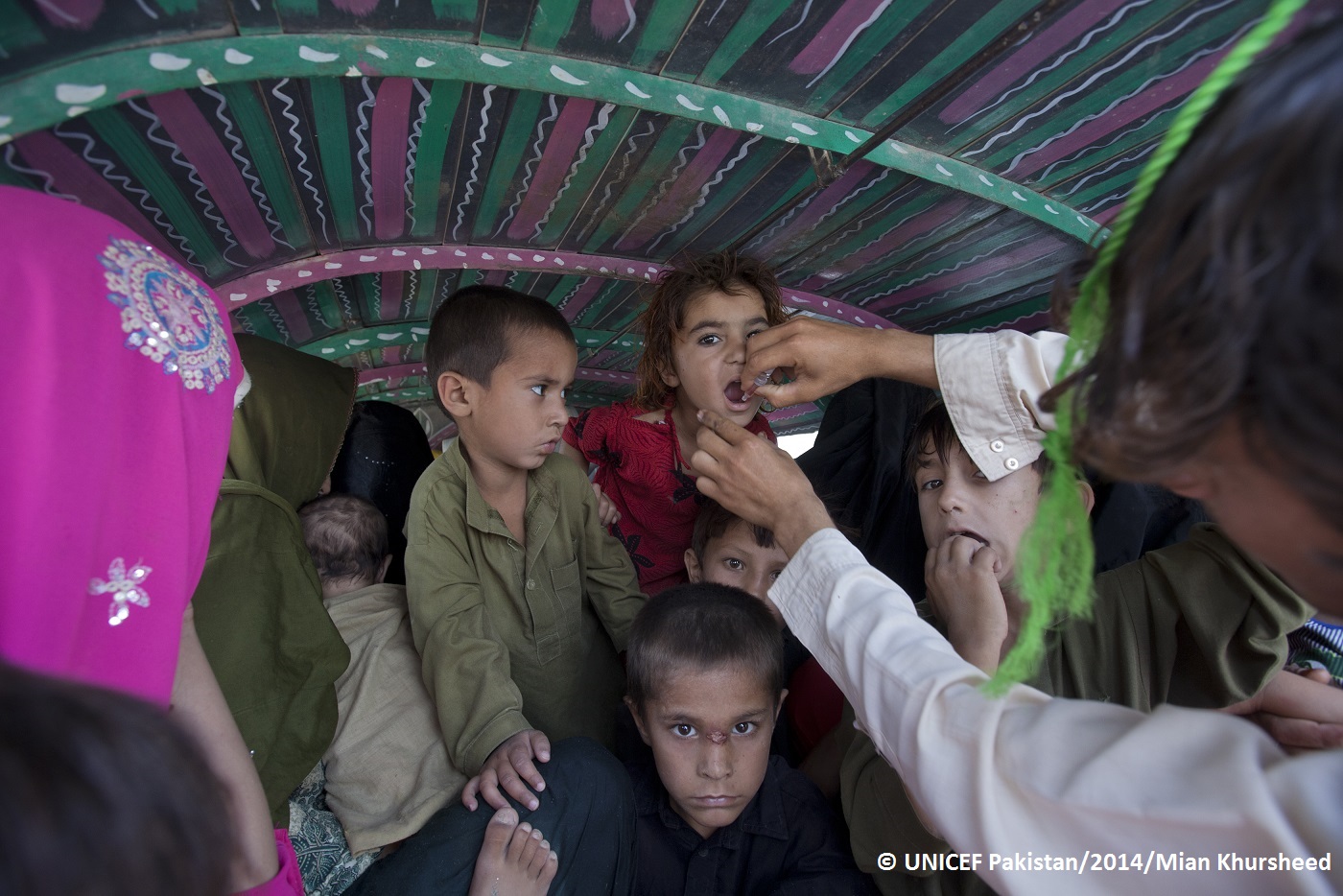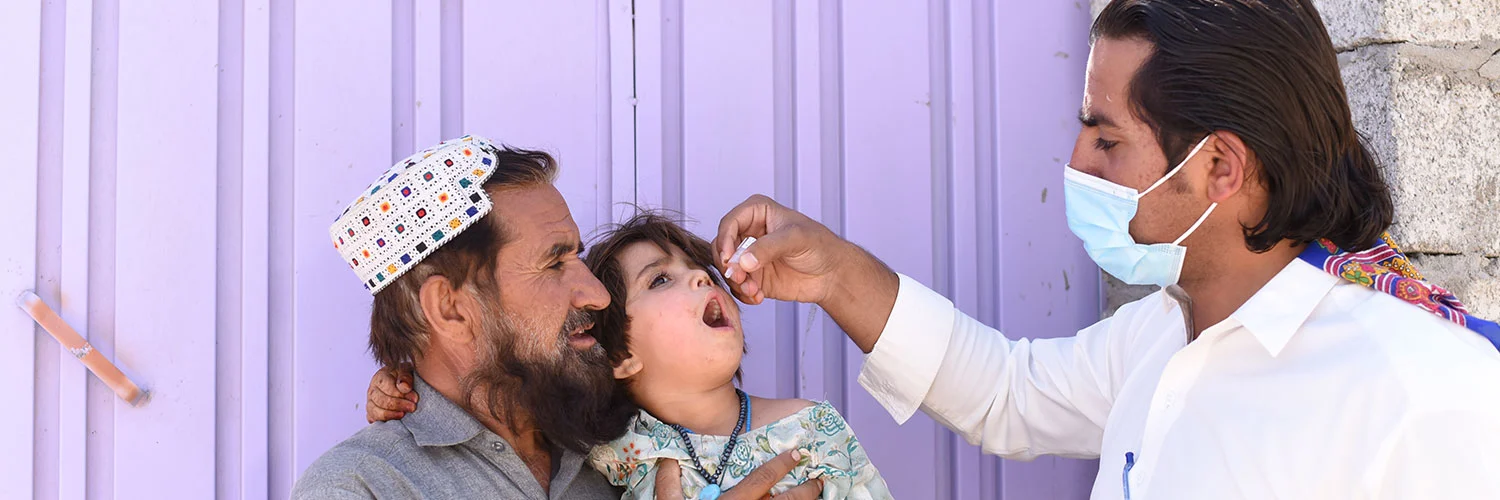
Over the last two months, Pakistani military operations against militants in North Waziristan, part of the Federally Administered Tribal Areas of Pakistan (FATA), have displaced nearly 1 million individuals from areas of North and South Waziristan. (UNICEF, WHO)
The region has been under a vaccination ban imposed by local leaders since June 2012, and more than 70 percent of Pakistan’s polio cases this year have come from North Waziristan.
The mass population movement poses a number of challenges to the polio eradication effort, including identifying and tracking displaced persons in need of vaccination. Still, due to the efforts of the Government of Pakistan and local organizations, including the Pakistan Red Crescent and the Pakistan Pediatric Association, there has been progress in delivering polio vaccines and other health services to many of the previously unreachable children. (International Committee of the Red Cross)
More than 1.5 million doses of oral polio vaccine (OPV) were administered to children under five during three rounds of house-to-house vaccination campaigns among the displaced and host communities. (UN Office for the Coordination of Humanitarian Affairs)
- Tens of thousands of families have fled across the border into Afghanistan, and more than 35,000 children under 10 years old have received OPV upon entering the country. The displaced are also receiving basic humanitarian aid, including food and shelter. (Global Polio Eradication Initiative)
- In and around the Bannu district in Khyber Pakhtunkhwa – where more than 80% of internally displaced people are staying – authorities are administering polio drops along with the measles vaccine, diarrheal disease kits and other health interventions for women and children. (UN Office for the Coordination of Humanitarian Affairs)
For more information, visit the websites of End Polio Pakistan and Global Polio Eradication Initiative.

